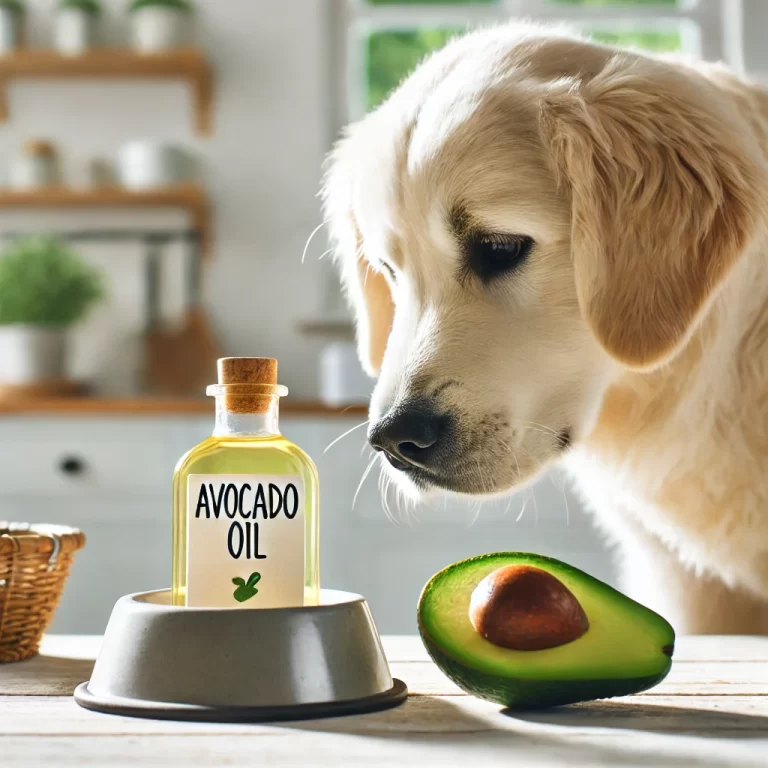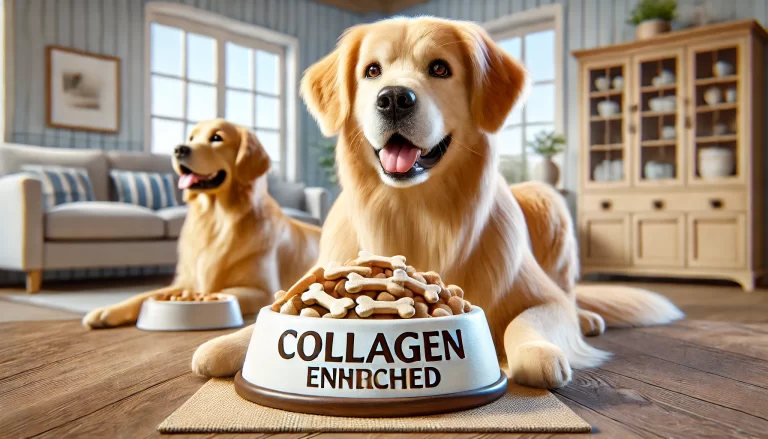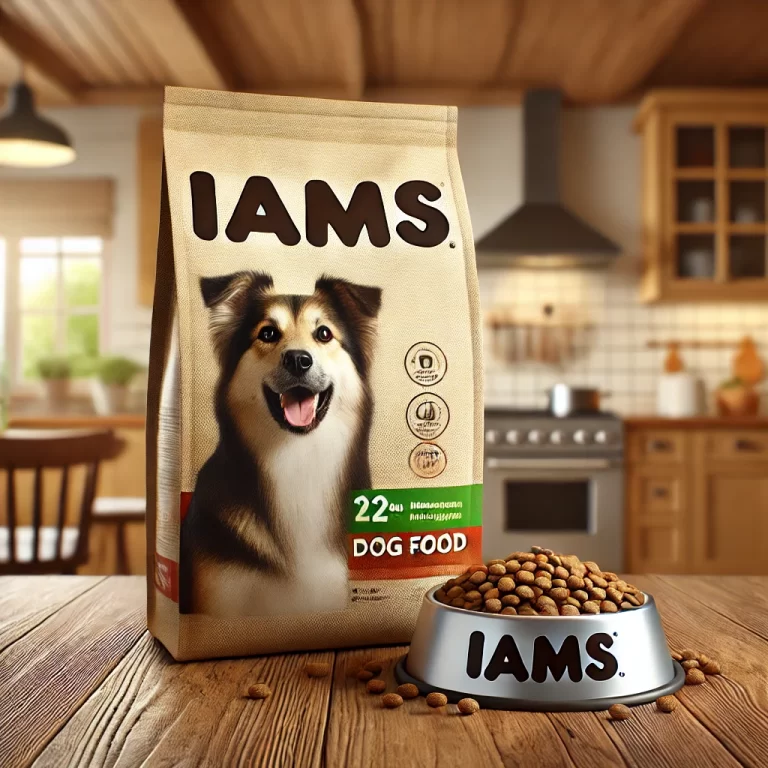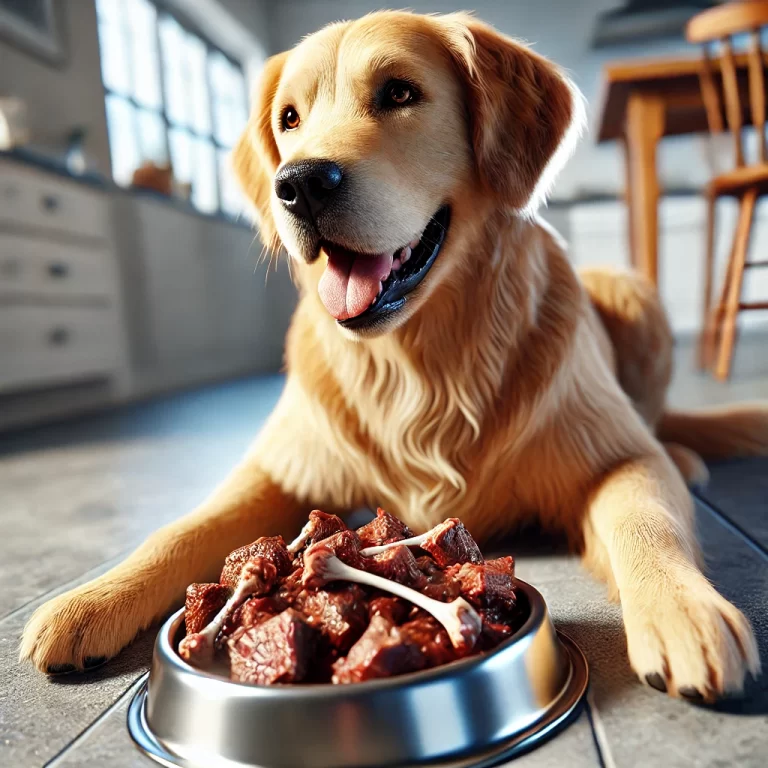Can Dogs Have Carrots? Benefits, Risks, and How to Serve Them
As pet parents, we all want to give our dogs the healthiest, tastiest treats. One common question that arises is: Can dogs have carrots? The answer is a resounding yes! Carrots are not only safe for dogs, but they’re also loaded with nutrients that benefit your canine companion in many ways. In this comprehensive guide, we’ll explore the benefits, feeding tips, and potential risks of giving carrots to dogs.
Table of Contents
- Are Carrots Safe for Dogs?
- Health Benefits of Carrots for Dogs
- Raw vs Cooked Carrots: Which is Better?
- How to Feed Carrots to Your Dog
- Can Puppies Eat Carrots?
- How Much Carrot Can a Dog Eat?
- Are There Any Risks?
- FAQ
- Conclusion
Are Carrots Safe for Dogs?
Yes, carrots are perfectly safe for dogs. Both raw and cooked carrots are non-toxic and can be a crunchy, sweet, and satisfying treat. They’re even recommended by many veterinarians as a healthy snack or training reward. However, like all foods, they should be given in moderation.
Health Benefits of Carrots for Dogs
Carrots offer several health advantages for your dog:
- Rich in Beta-Carotene: Carrots are high in beta-carotene, which converts to vitamin A and supports vision, skin, and immune health.
- High in Fiber: Helps regulate digestion and supports healthy stools.
- Low in Calories: A perfect low-fat treat for dogs on a diet.
- Good for Dental Health: Crunching on raw carrots can help clean teeth and massage gums.
- Hydration Boost: Carrots are about 88% water, helping to keep your dog hydrated.
Raw vs Cooked Carrots: Which Is Better?
Both options are safe, but they offer slightly different benefits:
- Raw carrots: Crunchy texture helps clean teeth and provides a satisfying chew. Great as a healthy snack or reward.
- Cooked carrots: Easier to digest, especially for older dogs or those with dental issues. Steaming helps retain nutrients.
Avoid adding butter, oil, salt, or spices—keep it plain for your pup.
How to Feed Carrots to Your Dog
Here are safe and fun ways to introduce carrots into your dog’s diet:
- Slice or dice raw carrots into bite-sized pieces for training treats.
- Steam or boil carrots until soft for a warm, gentle snack.
- Freeze carrot sticks to soothe teething puppies.
- Grate carrots over dry food for extra nutrients.
- Puree carrots and mix with kibble or homemade meals.
Can Puppies Eat Carrots?
Absolutely! In fact, frozen carrots are a common recommendation for teething puppies. They help numb sore gums and provide a safe chewing outlet. Just be sure to supervise and offer manageable sizes to prevent choking.
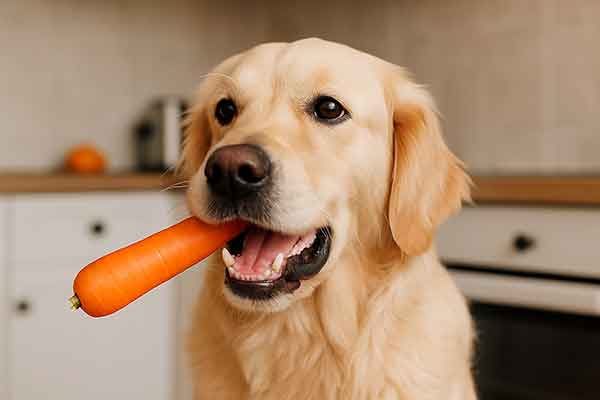
How Much Carrot Can a Dog Eat?
Carrots are healthy, but they shouldn’t make up more than 10% of your dog’s daily calorie intake. A few baby carrots or one medium carrot per day is usually sufficient for medium-sized dogs. Adjust portion sizes based on your dog’s weight and activity level.
Are There Any Risks?
Carrots are generally safe, but here are a few precautions:
- Choking hazard: Cut carrots into small, manageable pieces, especially for small dogs or puppies.
- High in sugar: Though natural, excessive amounts can affect blood sugar—caution with diabetic dogs.
- Digestive upset: Too much fiber may cause gas or soft stools.
FAQ
Can dogs eat baby carrots?
Yes, baby carrots are a convenient and safe snack. Just make sure they are fresh and offered in moderation.
Are cooked carrots better than raw carrots for dogs?
Cooked carrots are softer and easier to digest, but raw carrots offer dental benefits. Both are healthy when served plain.
Can carrots replace dog treats?
Carrots can be a great low-calorie alternative to store-bought treats, especially for overweight dogs. However, they shouldn’t fully replace balanced nutrition.
Can diabetic dogs eat carrots?
Carrots are relatively high in natural sugar, so consult your vet before offering them to diabetic pets.
Is carrot juice safe for dogs?
Fresh, unsweetened carrot juice is safe in small amounts, but it’s best to serve whole carrots for fiber benefits.
Conclusion
So, can dogs have carrots? Yes—they’re one of the healthiest human foods you can share with your pup. From crunchy raw snacks to soft steamed bites, carrots are versatile, nutrient-rich, and generally well-loved by dogs of all breeds. Just remember to serve them in moderation and always observe your dog’s response. When in doubt, consult your vet for personalized advice.
Want to learn more about dog-safe human foods? Check out our guides on fruits dogs can eat and vegetables safe for dogs.

